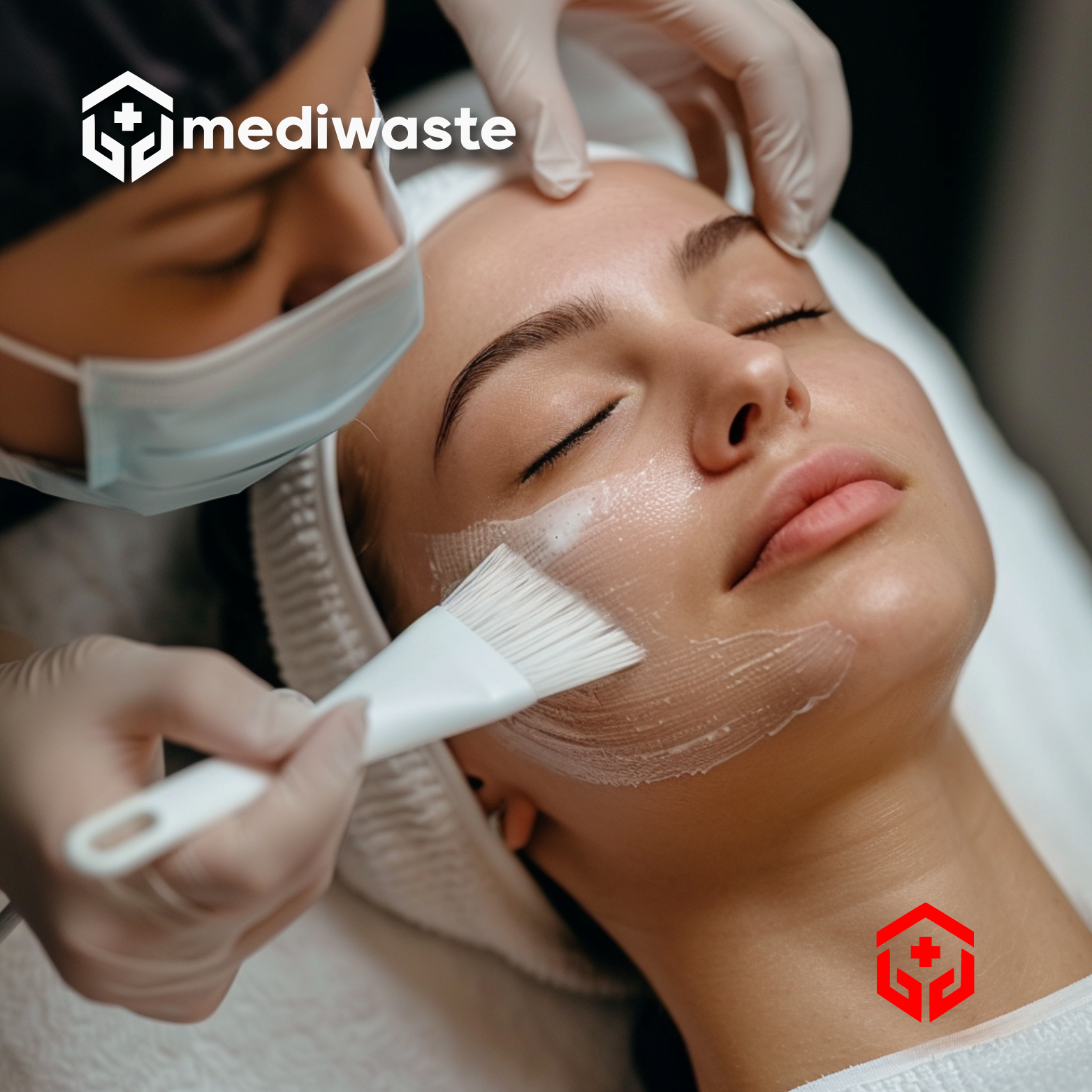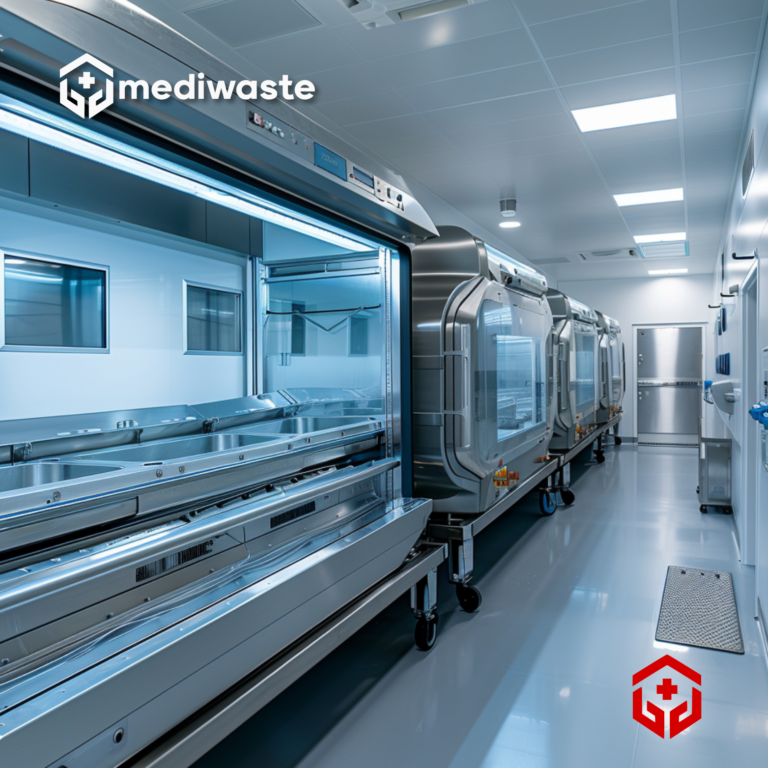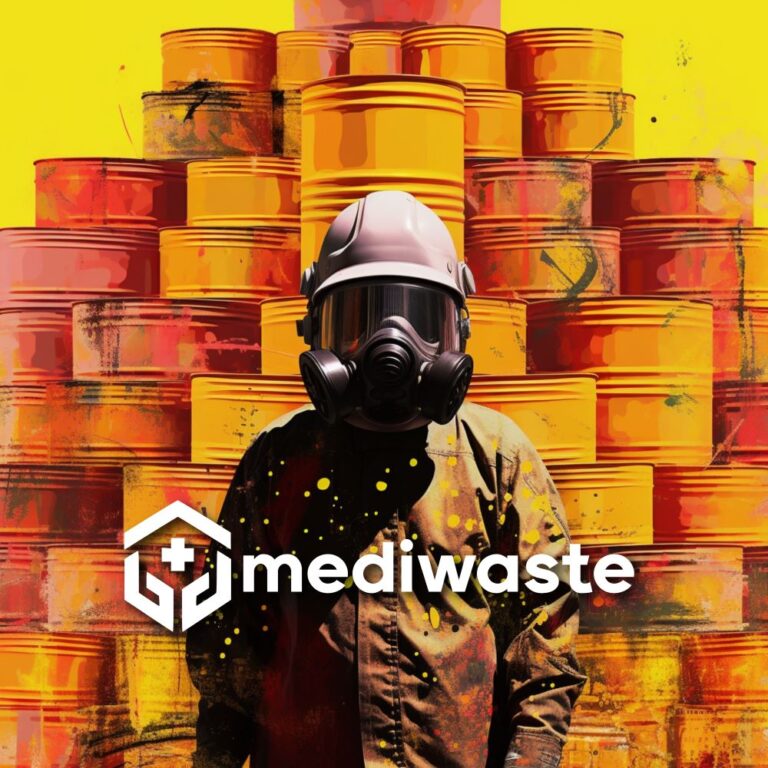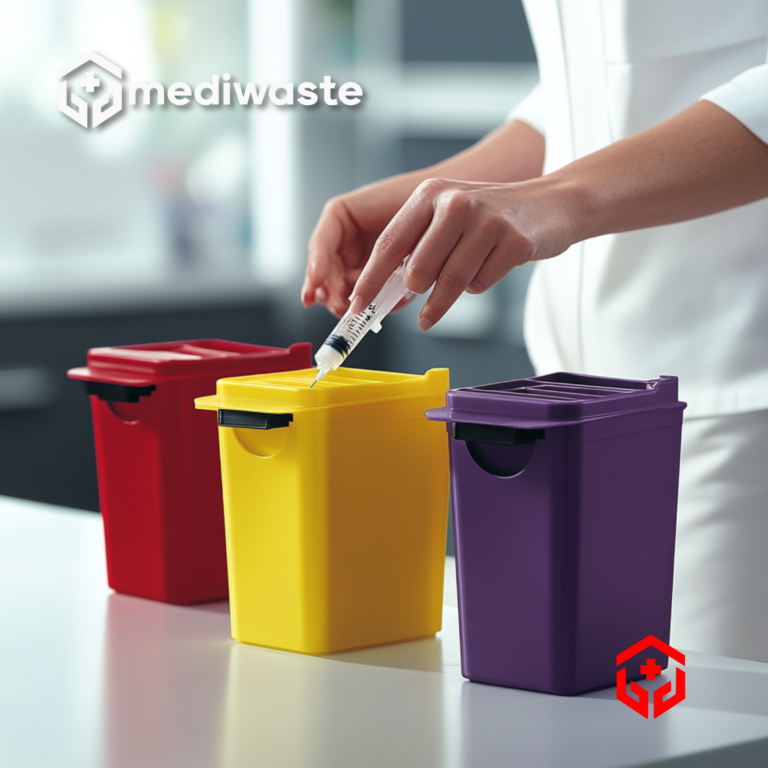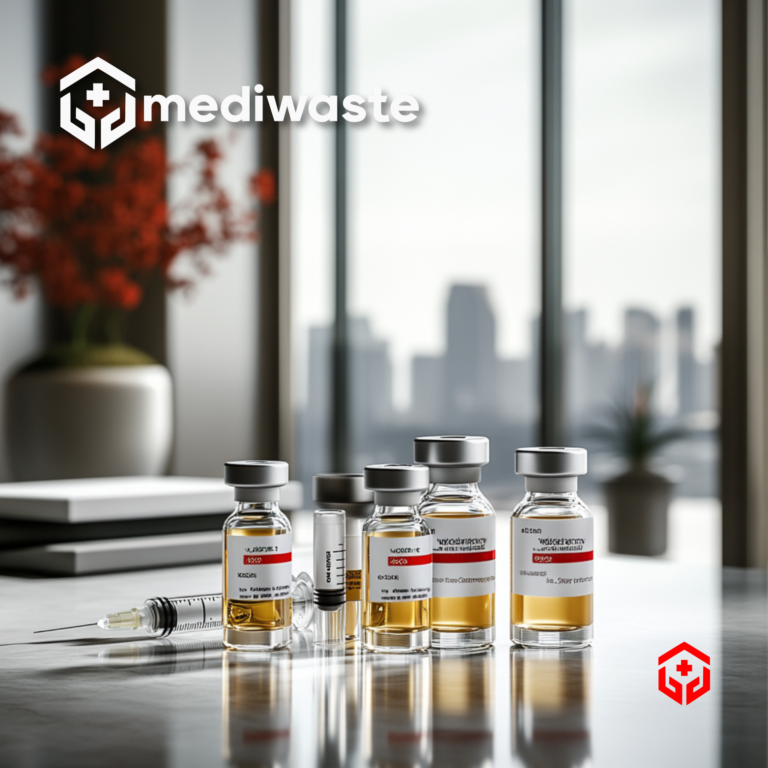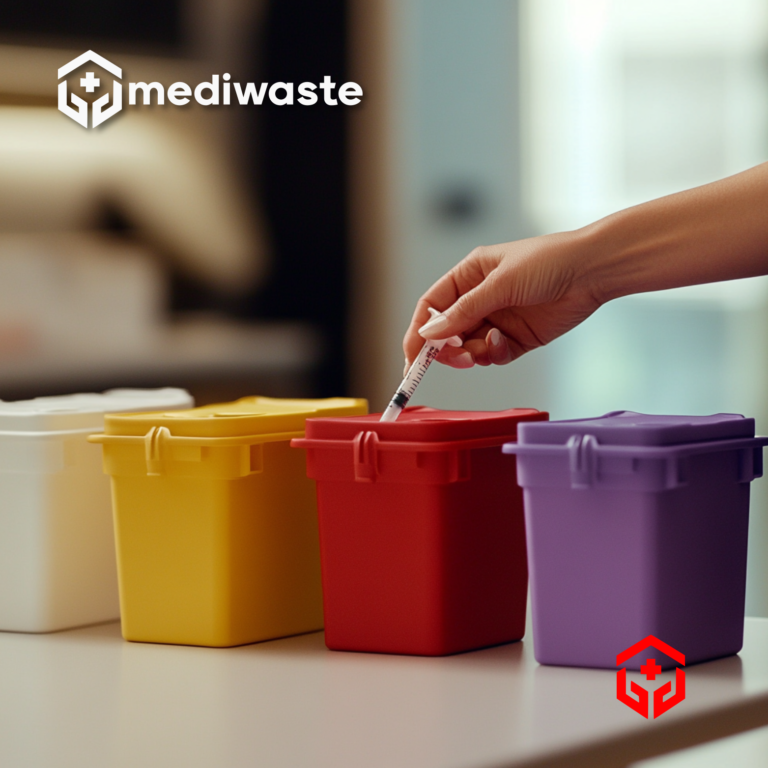Proper Disposal of Chemical Peel Waste and Neutralizing Agents
Chemical peels are popular treatments in cosmetic clinics, but they generate waste that requires careful handling and disposal. This article outlines best practices for the proper disposal of chemical peel waste and neutralizing agents, ensuring safety, regulatory compliance, and environmental protection.
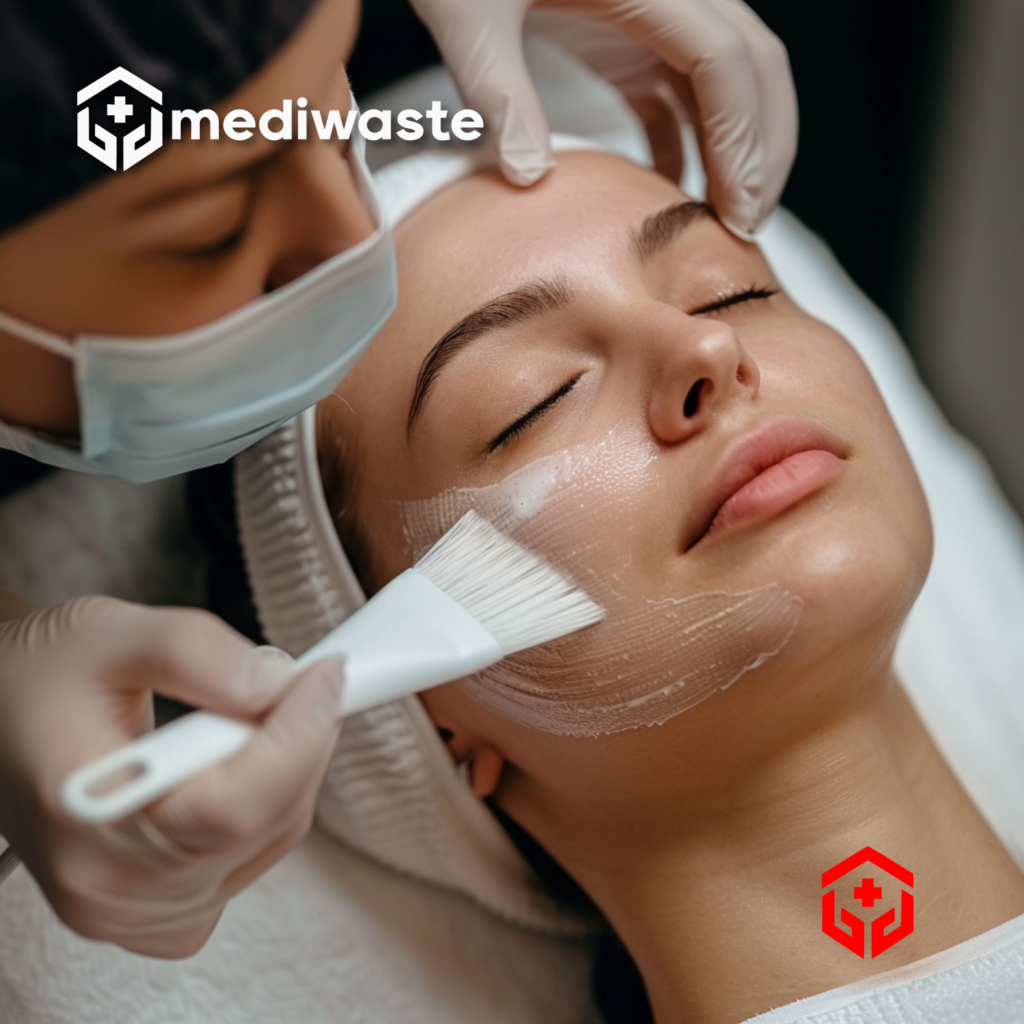
Understanding Chemical Peel Waste
Chemical peel waste typically includes:
- Used applicators and gauze
- Leftover peel solution
- Neutralizing agents
- Contaminated personal protective equipment (PPE)
MediWaste, the leading provider of medical waste management solutions, emphasizes the importance of proper classification and handling of chemical peel waste to ensure compliance with regulations and protect public health.
Classifying Chemical Peel Waste
Chemical peel waste is generally classified as hazardous waste due to its corrosive or toxic properties. The specific classification depends on the type and concentration of acids or other chemicals used in the peel solution.
Best Practices for Disposal
1. Segregation at the Point of Generation
Proper waste segregation is crucial:
- Use designated, clearly labelled containers for chemical peel waste
- Keep chemical waste separate from other waste streams
- Never mix different types of chemical waste
MediWaste provides color-coded waste containers and clear labelling systems to facilitate proper waste segregation in cosmetic clinics.
2. Proper Containment
Use appropriate containers for chemical waste:
- Containers should be compatible with the chemicals they contain
- Ensure containers are leak-proof and have secure lids
- Label containers clearly with the contents and hazard information
3. Neutralization
Some chemical peel solutions may require neutralization before disposal:
- Follow manufacturer guidelines for neutralization procedures
- Use appropriate personal protective equipment (PPE) when handling chemicals
- Document all neutralization processes
MediWaste offers guidance on proper neutralization techniques and can provide specialized containers for neutralized waste.
4. Storage
Store chemical waste safely until collection:
- Use a designated, secure area for waste storage
- Ensure the storage area is well-ventilated and away from heat sources
- Regularly inspect storage areas for leaks or damage
5. Collection and Disposal
Contract with a licensed hazardous waste disposal service:
- Ensure regular collection schedules to prevent accumulation
- Maintain proper documentation, including waste transfer notes, for each collection
MediWaste provides comprehensive collection and disposal services for chemical peel waste, ensuring all materials are handled in compliance with current regulations.
Staff Training and Education
Proper staff training is essential for safe chemical peel waste management:
- Provide comprehensive training on waste classification and handling procedures
- Ensure all staff understand the risks associated with chemical waste
- Regularly update training to reflect any changes in regulations or best practices
MediWaste offers tailored training programs to ensure all staff members in cosmetic clinics understand and can effectively implement safe disposal practices for chemical peel waste.
Regulatory Compliance
Cosmetic clinics must comply with several regulations regarding chemical waste disposal:
- Environmental Protection Act 1990
- Hazardous Waste Regulations 2005
- Control of Substances Hazardous to Health Regulations 2002 (COSHH)
MediWaste stays abreast of all relevant regulations and can provide guidance to ensure your clinic remains compliant with current legal requirements.
Environmental Considerations
Proper disposal of chemical peel waste is crucial for environmental protection:
- Prevents contamination of water sources
- Reduces the risk of soil pollution
- Protects wildlife and ecosystems from harmful chemicals
Innovative Solutions for Chemical Waste Management
Consider implementing advanced solutions for chemical waste management:
- On-site Treatment Systems: Some clinics are investing in on-site treatment systems that can neutralize and treat chemical waste before disposal.
- Waste Minimization Strategies: Implement practices to reduce the amount of chemical waste generated, such as precise measuring and application techniques.
- Recycling Programs: Some chemical suppliers offer take-back programs for unused or expired products.
MediWaste stays at the forefront of innovative waste management solutions, offering cutting-edge options to cosmetic clinics for managing their chemical waste.
Conclusion
Proper disposal of chemical peel waste and neutralizing agents is essential for maintaining a safe and compliant cosmetic clinic. By implementing these best practices, clinics can protect their staff and clients, comply with regulations, and contribute to environmental protection.
MediWaste is committed to supporting cosmetic clinics in implementing safe and compliant chemical waste management practices. Our comprehensive services, expertise in regulatory compliance, and innovative waste management solutions make us an ideal partner for clinics looking to improve their waste management practices and ensure ongoing compliance.
Contact MediWaste
For expert guidance on proper disposal of chemical peel waste and neutralizing agents in your cosmetic clinic, contact MediWaste today. Our team of specialists can provide tailored solutions to help your facility optimize its chemical waste management practices, ensure regulatory compliance, and minimize environmental impact.
Whether you’re looking to improve your current waste management program or implement a comprehensive new system, MediWaste has the expertise and resources to support your goals. Reach out to us to schedule a consultation and take the first step towards more efficient, compliant, and sustainable chemical waste management in your cosmetic clinic.

